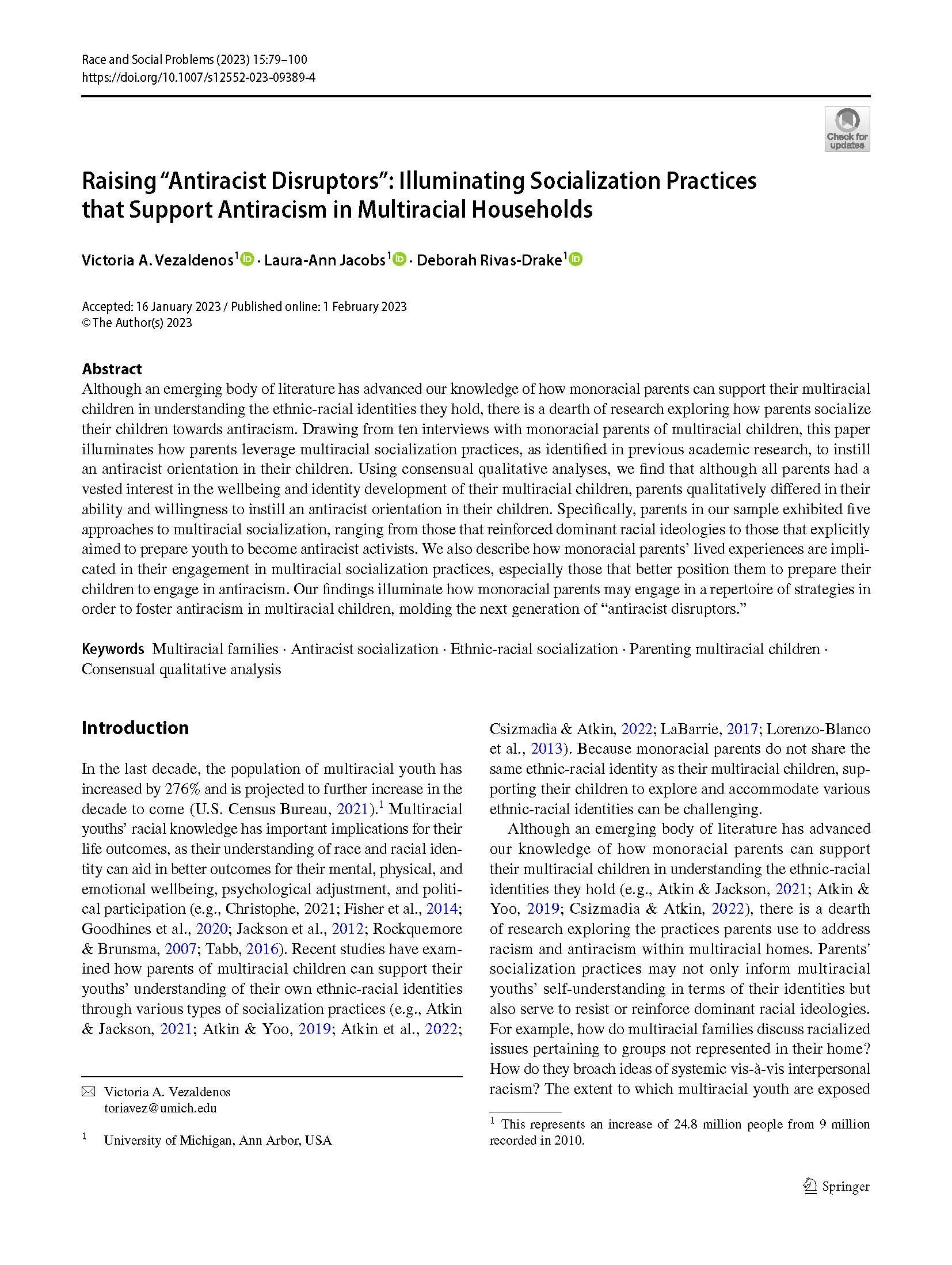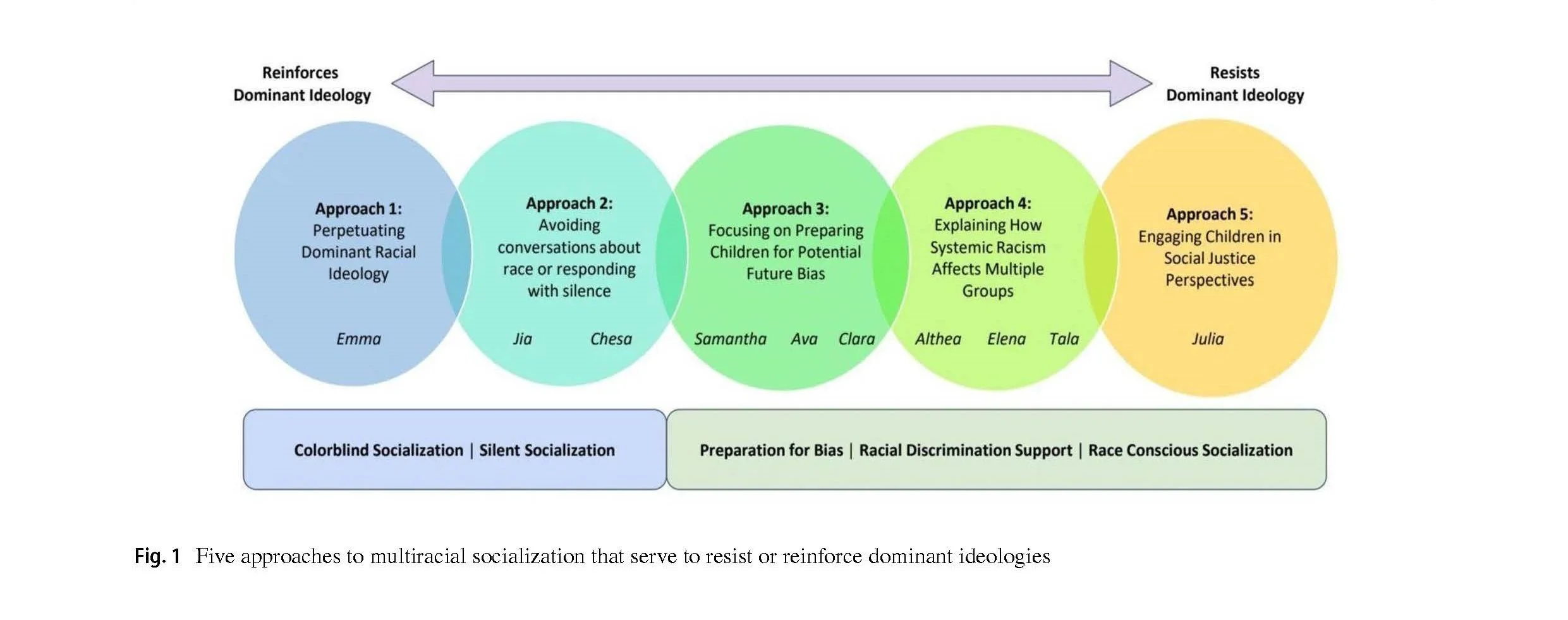PUBLICATIONS
(2023) Raising "Antiracist Disruptors": Illuminating Socialization Practices that Support Antiracism in Multiracial Households
with Victoria Vezaldenos and Deborah Rivas-Drake
Abstract:
Although an emerging body of literature has advanced our knowledge of how monoracial parents can support their multiracial children in understanding the ethnic-racial identities they hold, there is a dearth of research exploring how parents socialize their children towards antiracism. Drawing from ten interviews with monoracial parents of multiracial children, this paper illuminates how parents leverage multiracial socialization practices, as identified in previous academic research, to instill an antiracist orientation in their children. Using consensual qualitative analyses, we find that although all parents had a vested interest in the wellbeing and identity development of their multiracial children, parents qualitatively differed in their ability and willingness to instill an antiracist orientation in their children. Specifically, parents in our sample exhibited five approaches to multiracial socialization, ranging from those that reinforced dominant racial ideologies to those that explicitly aimed to prepare youth to become antiracist activists. We also describe how monoracial parents' lived experiences are implicated in their engagement in multiracial socialization practices, especially those that better position them to prepare their children to engage in antiracism. Our findings illuminate how monoracial parents may engage in a repertoire of strategies in order to foster antiracism in multiracial children, molding the next generation of "antiracist disruptors."
(2020) Centering the Identities of Girls of Color in Computational Thinking Programs
with Patricia Garcia and Ashley Jackson
Abstract:
Efforts to broaden participation in computing have revealed the need for a deeper theoretical and empirical understanding of how girls of color form computing identities. In this paper, we use the concept of identities-in-practice as an analytical frame to examine how girls of color engage in computational thinking practices. Our research investigates how the identities of girls of color can be leveraged as funds of knowledge in learning spaces and asks the following research question: How does centering the identities of girls of color impact their engagement with computational thinking practices? We provide a program overview of CompuGirls, describe our curricular design approach, and share results from pilot implementations of the program offered at public libraries in Michigan, Arizona, and California. Results from our pilot year demonstrate that integrating identity exploration into a computational thinking curriculum results in a mutually reinforcing relationship where girls of color experience reflective identity development while simultaneously increasing their understanding of computational thinking. We present our approach as a promising avenue for connecting computing knowledge and skills to girls’ identities and lived experiences. By focusing on the girls’ identities, the program re-imagines computational experiences by fostering interactions with computational thinking from a personal perspective. Ultimately, we argue that centering girls’ identities should be viewed as an integral part of the learning process and not tangential.



